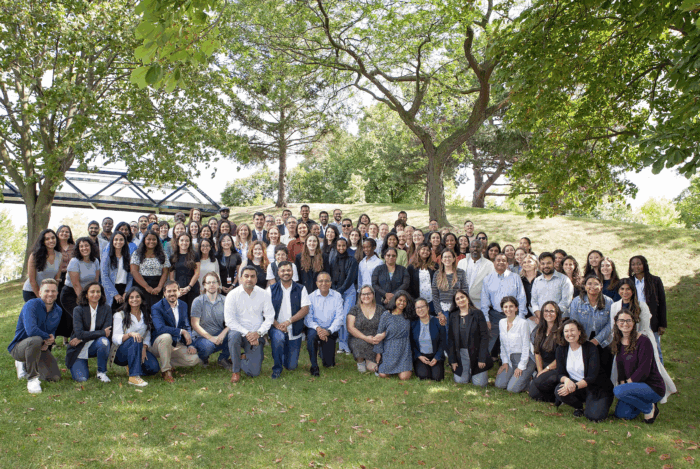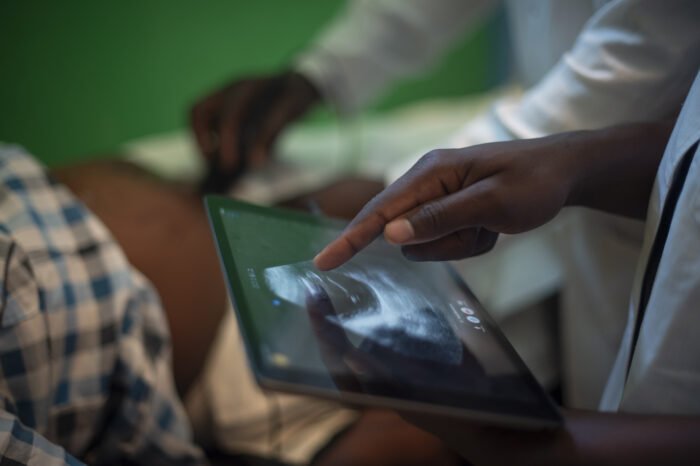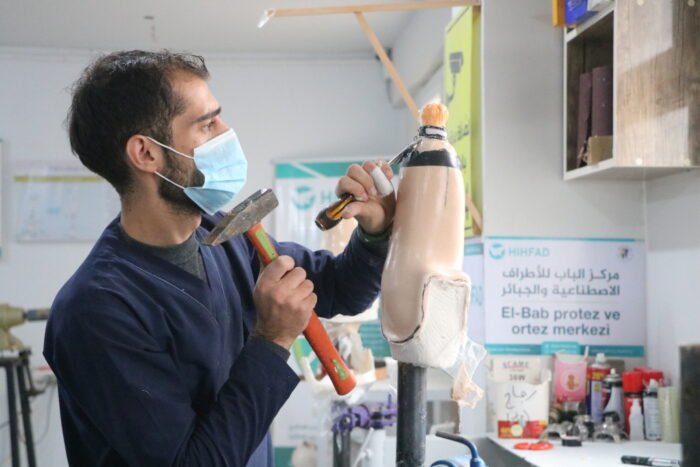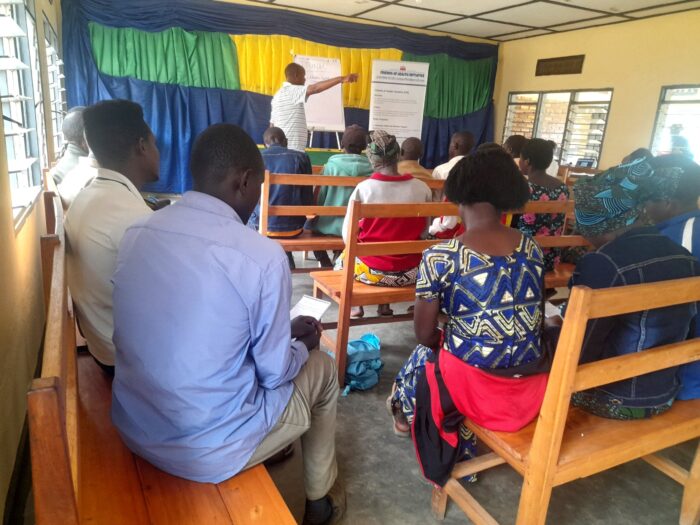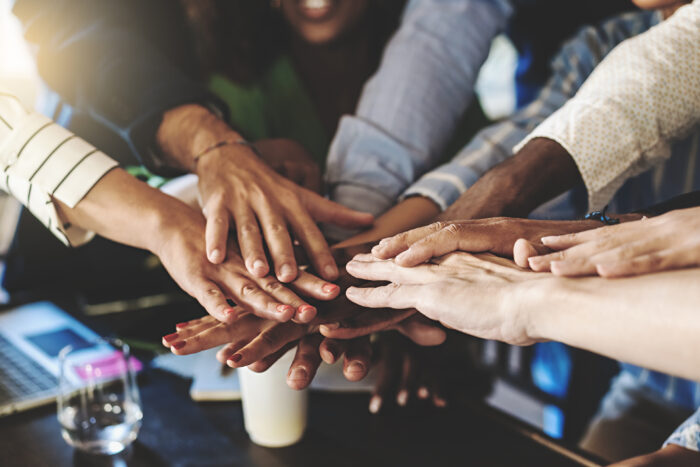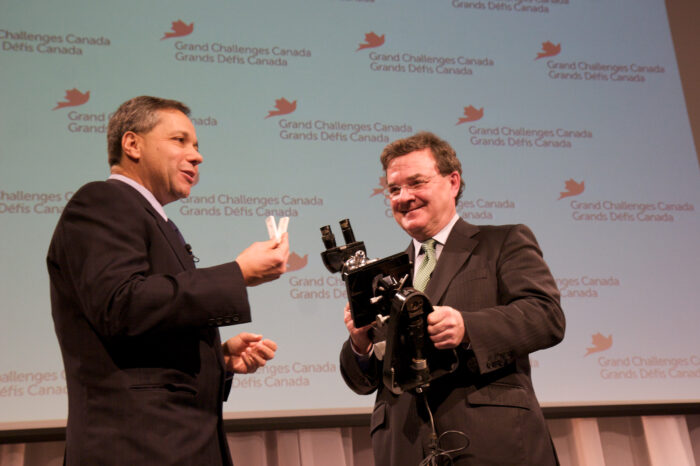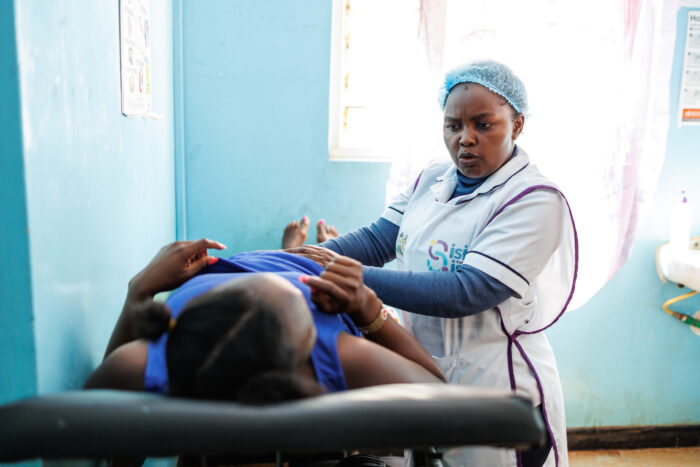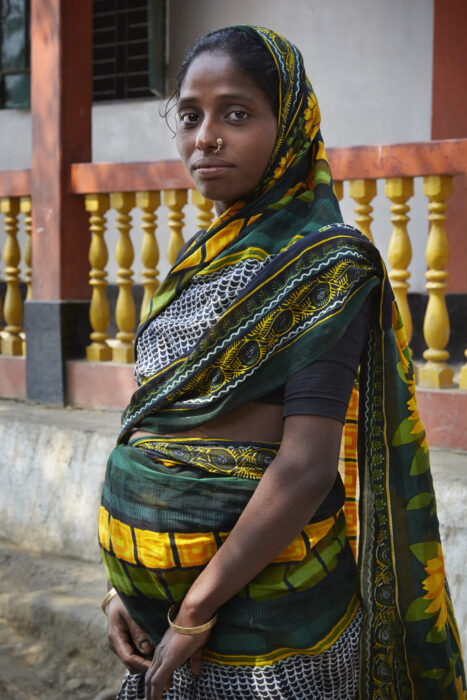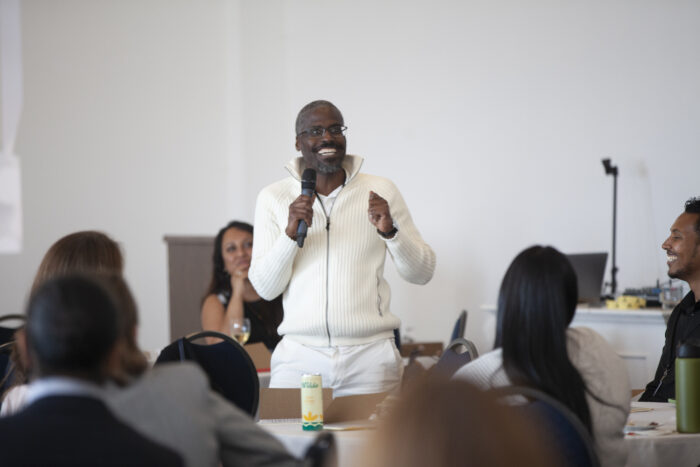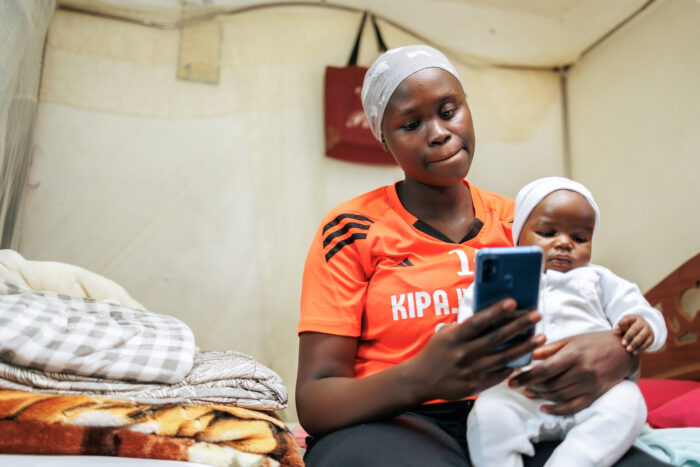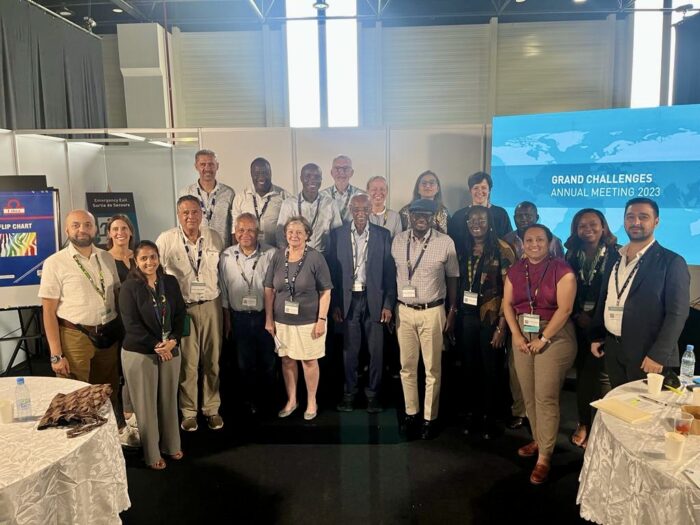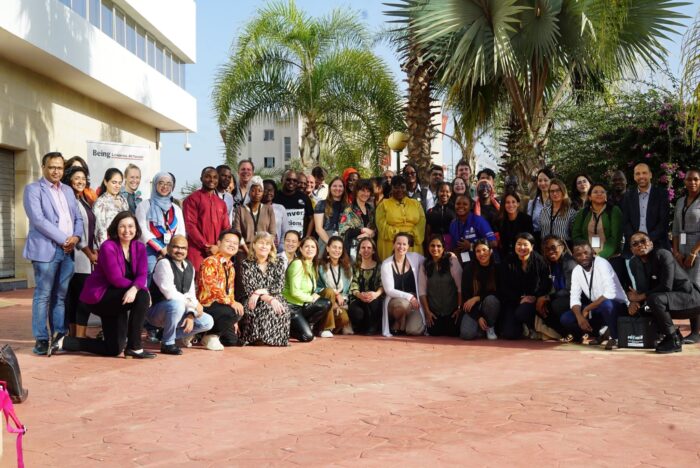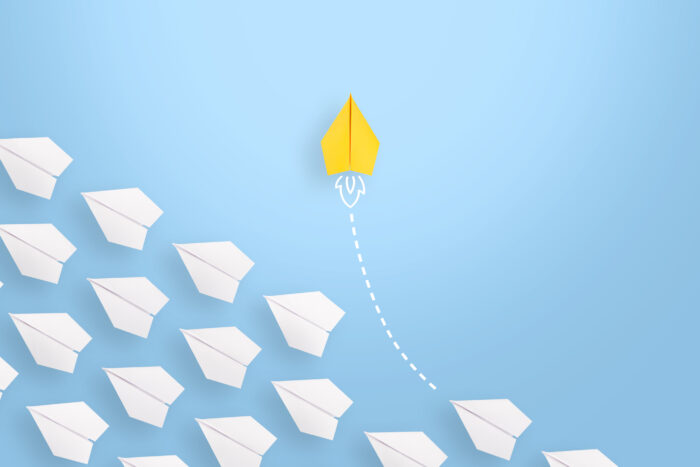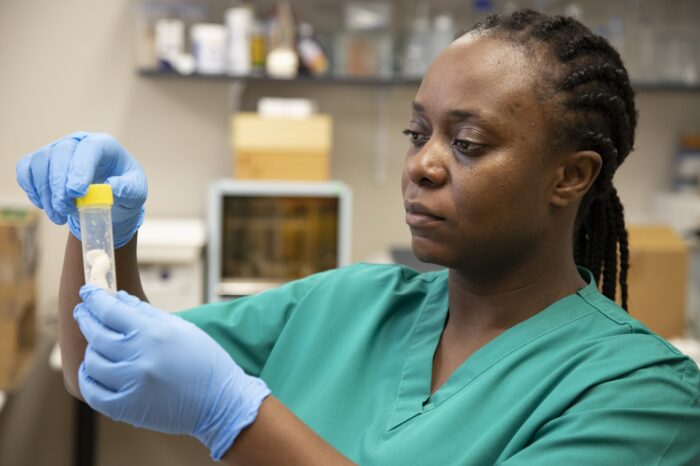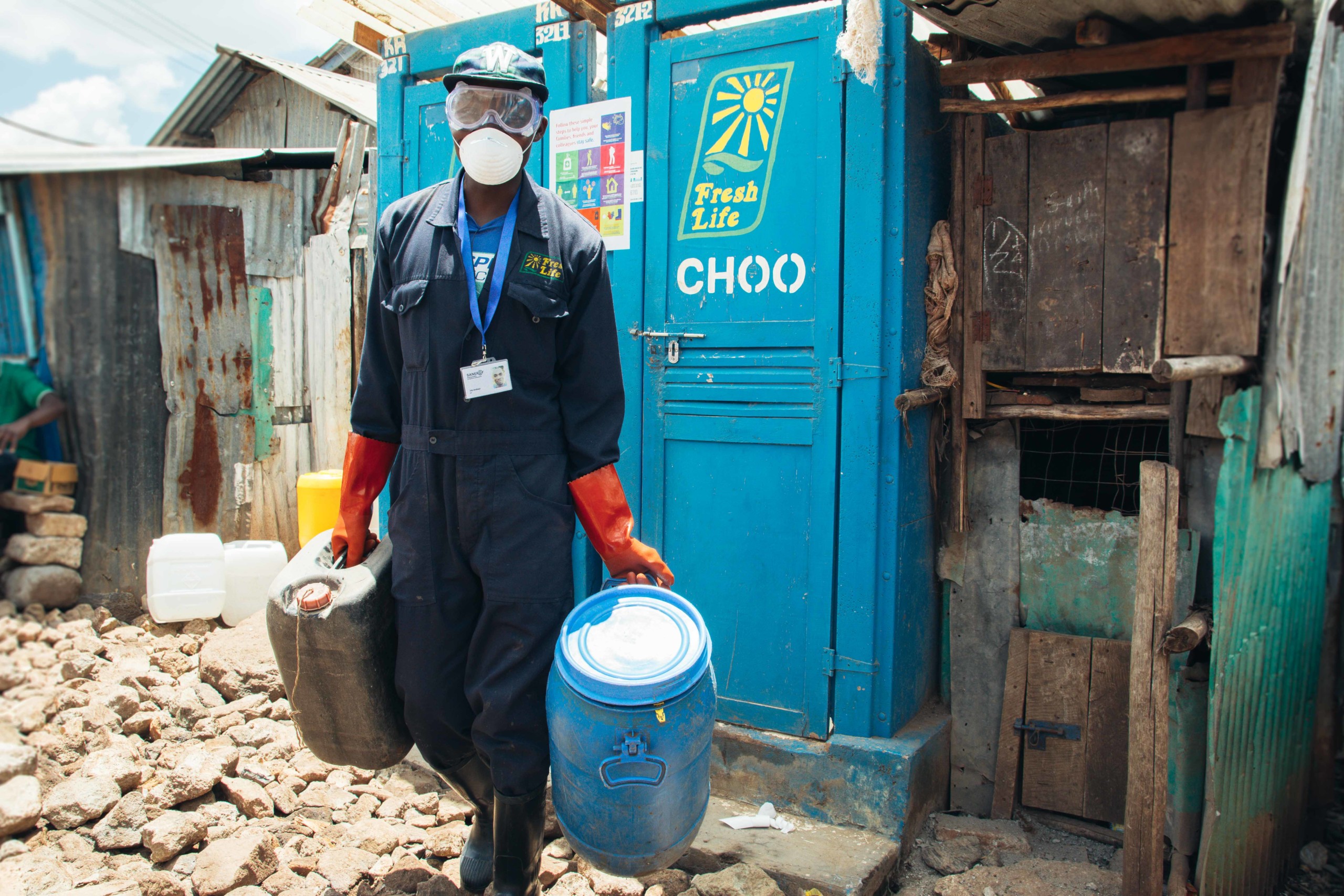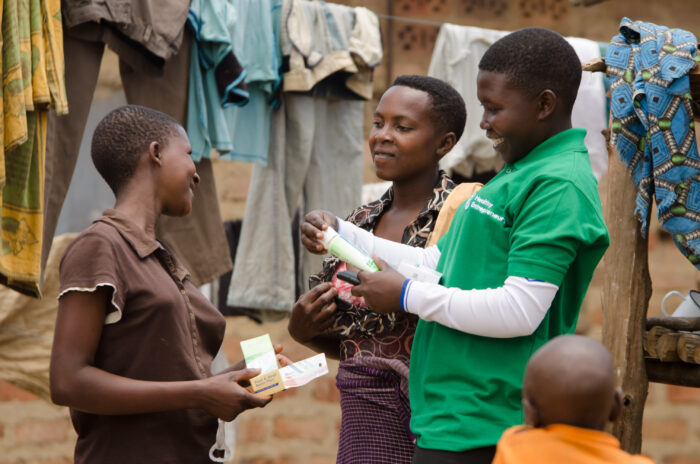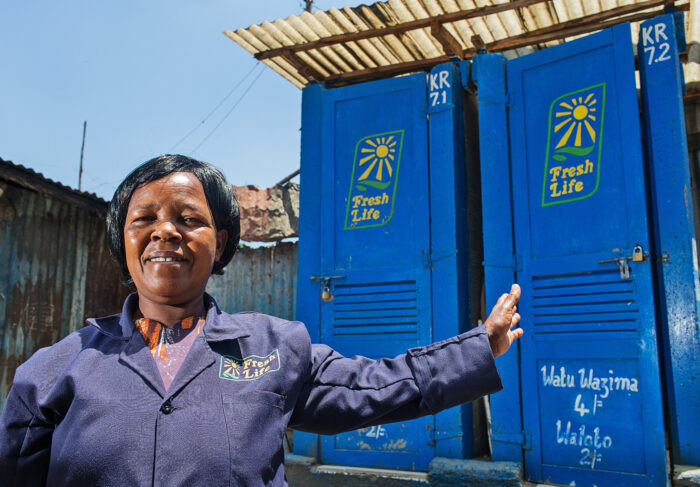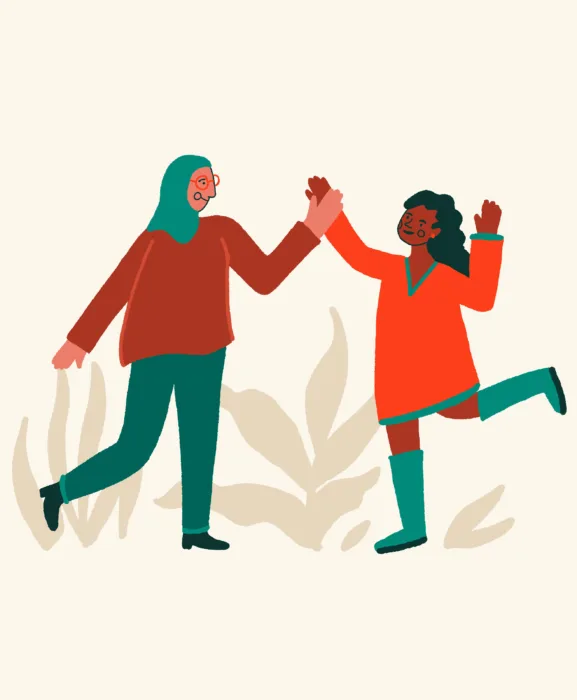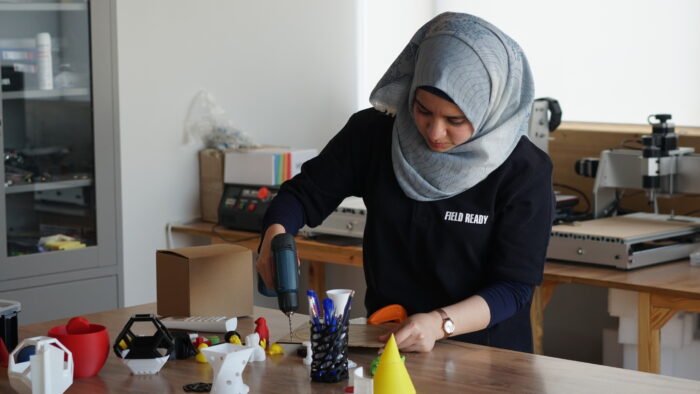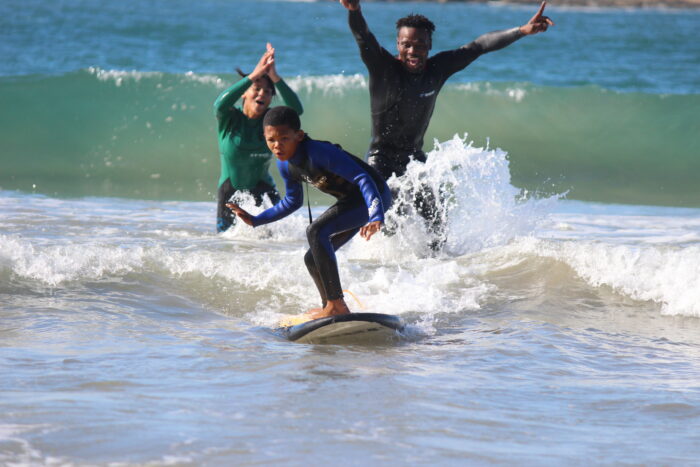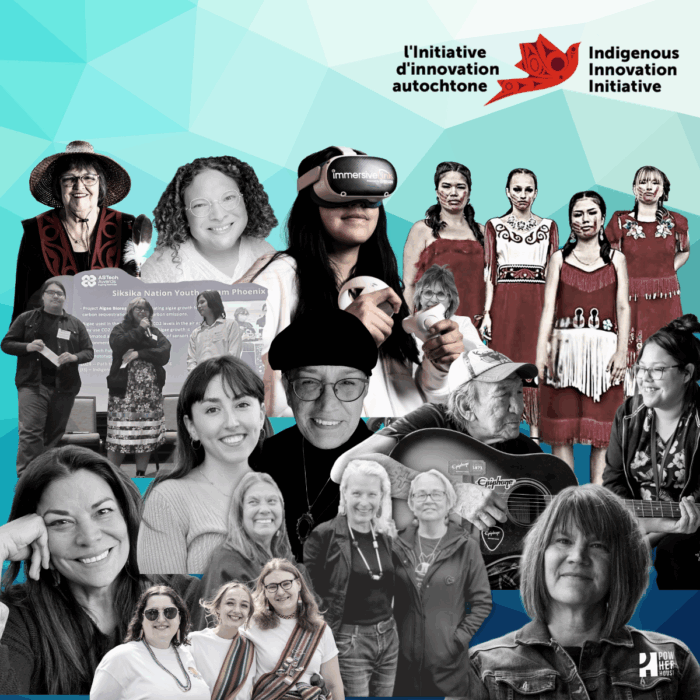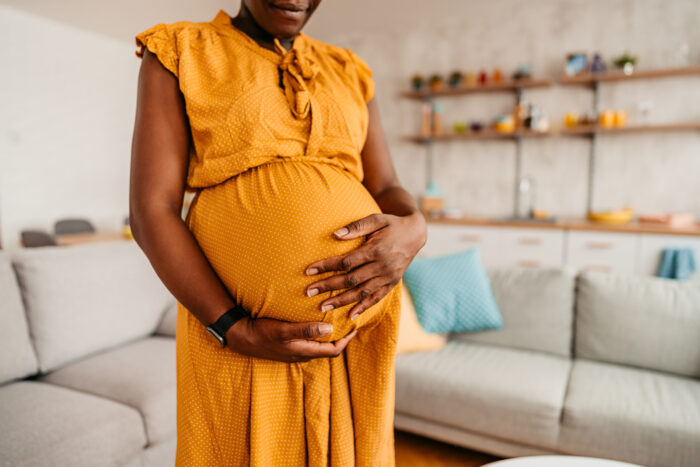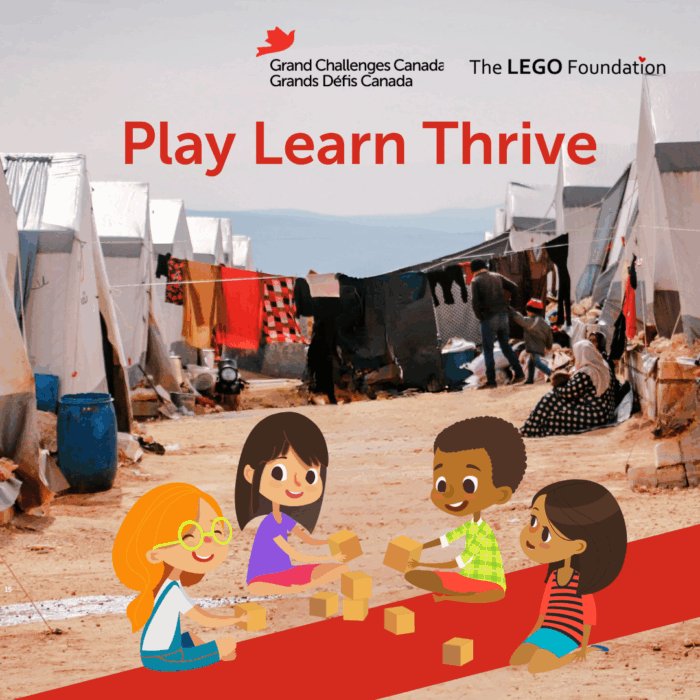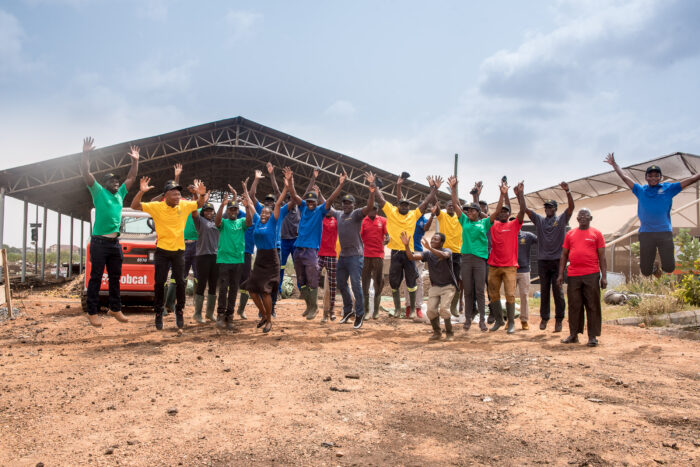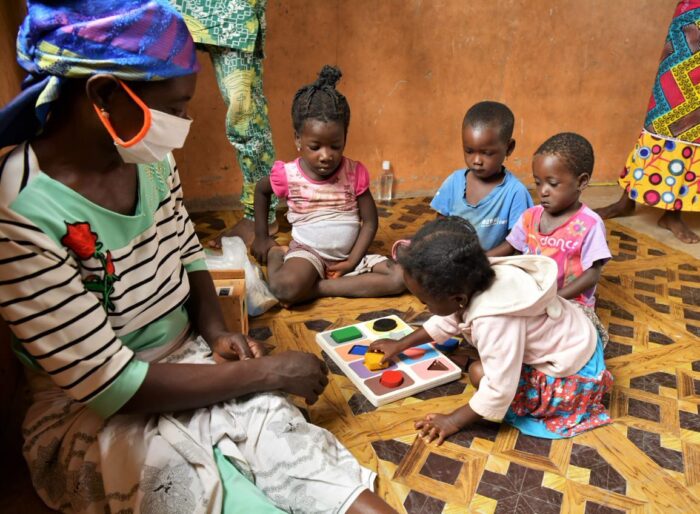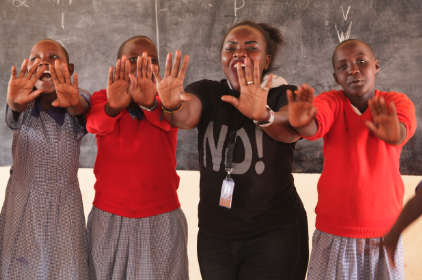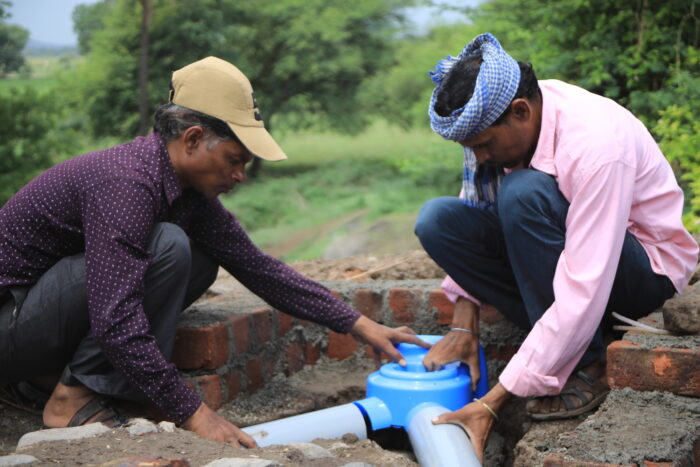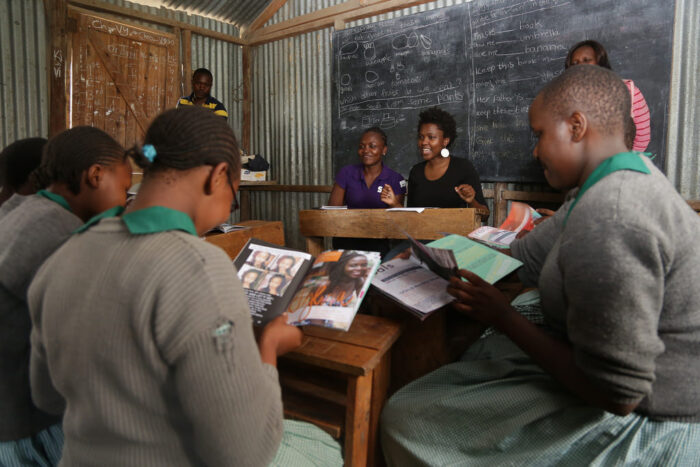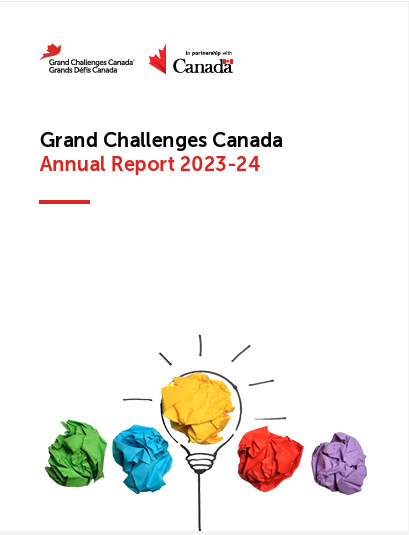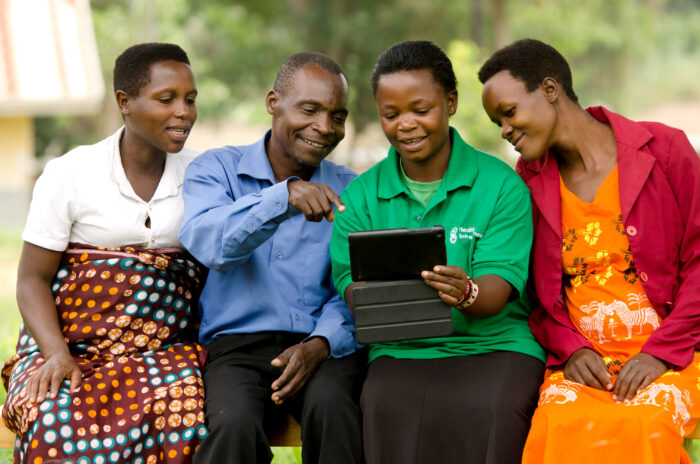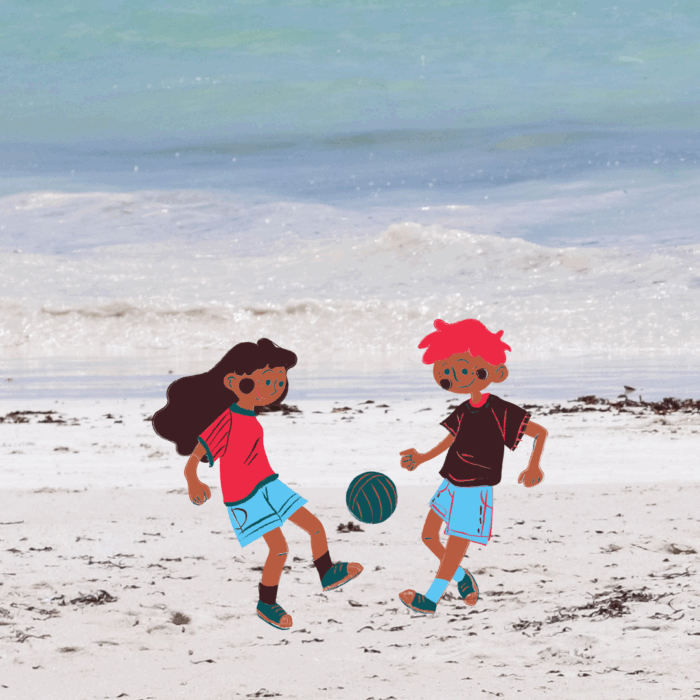In honour of National Indigenous History Month, we are celebrating the impact of the Indigenous Innovation Initiative, whose programs it manages are hosted at Grand Challenges Canada. We also invited CanalCanoa to share their story on their transformative innovation benefitting Indigenous communities in the Amazon.
By Ruth Rosalle, Helen Walsh, Jasmine Lam and James Radner, with the Saving Brains Learning Platform Team

Photo credit: Rita de Cácia Oenning da Silva (Founder and Executive Director, Usina da Imaginação)
CanalCanoa, a Grand Challenges Canada-supported innovation via the Saving Brains program, developed by the Brazilian non-governmental organization (NGO) Usina da Imaginação and the US-based NGO Shine a Light, takes an intentionally decolonized approach to early childhood development in the Amazon.
Rather than starting with an assumption that Indigenous communities of the Amazon somehow lack the capacity to foster child development, the CanalCanoa team understood that these communities have rich childrearing practices that are under pressure from urbanization and colonization. The traditions encourage contact with nature, curiosity-based learning, autonomous collective play, and children learning alongside adults. Families traditionally include parents who speak different first languages, providing young children with the benefit of a multilingual environment. However, urbanization and colonization can break traditional knowledge-sharing and social networks, and government policies and projects can create tension with traditional approaches.
CanalCanoa engages with the Amazon’s Indigenous communities to document film stories, songs, practices, and reflections related to traditional childrearing. Indigenous leaders then share the films for discussion in democratic community sessions (called ajuris de conhecimento), creating a space where traditional knowledge is recognized, reaffirmed and applied.
“The Indigenous people themselves were the ones who were the teachers in this process.”
– Rita de Cácia Oenning da Silva, Co-Executive Director, Usina da Imaginação
In one common approach to “cultural adaptation,” a program or curriculum is designed in a foreign or mainstream cultural setting, and then modified for implementation in a new or Indigenous context. The CanalCanoa team reflected that the ajuris de conhecimento effectively reversed this sequence. Here, the “curriculum” is based on Indigenous elders’ and shamans’ traditional knowledge and practices that originated in rural settings. As they discussed that material in the ajuris, Indigenous people in urban communities themselves adapted traditional, rural child-rearing approaches so they could be applied to their own lives in cities and towns in Brazil.
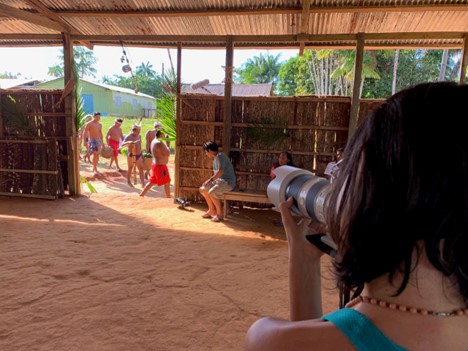
As the Tukano leader Jacinta Sampaio explained, “Today we must have Indigenous doctors who believe in Indigenous medicine and Indigenous thought.” When CanalCanoa calls attention to these ideas of the Indigenous “good life,” it creates the possibility of intercultural dialogue with public policy:
“If you’re truly having a decolonized perspective, that demands that I say that the other knows and that the other has something to teach me.”
– Kurt Shaw, Co-Executive Director, Usina da Imaginação
The films and ajuris de conhecimento are organized around seven themes that local communities identify as priorities for child development: (1) pregnancy and childbirth; (2) child stimulation; (3) language and song; (4) education; (5) protection and care; (6) orientation; and (7) public health. Each ajuri opens with a series of short animated movies made by Indigenous children, with material on, for example, local myths and stories, how to prepare staple food items, or how to make toys, crafts, and pieces of art.
After these introductory videos, the group watches a 10- to 12-minute film about one of the seven themes outlined above. To build on the film’s message, older Indigenous leaders then share their insights and experiences on topics such as what childhood had been like for them, what they understood to be the best ways to stimulate and protect children, or how to best support women during pregnancy and childbirth.
Izoneia Araújo, a Tariana intellectual with a university degree in biology who worked as an educator with CanalCanoa, shared:
“Our tradition of caring for children starts with pre-natal care—a shaman and a midwife work with the mother to prepare her body and the place where the child will be received into the world. My father is a shaman, and he taught me that these blessings protect the baby from the spirits of the forest, but I am also a biologist: the care we take with cleanliness and medicinal herbs also protects from bacteria and disease.”
CanalCanoa showed the seven movies to over 50 groups of 10 to 15 parents from 24 Indigenous communities, who viewed and discussed the films over the course of two months. The evaluation conducted at the end of the ajuris showed promising results on all three domains of inquiry selected for assessment: 1) intellectual stimulation; 2) nutrition and healthcare, and 3) supportive relationships. In interviews, 91% of participants reported that after the ajuris they spoke with their children and grandchildren more often in Indigenous languages, told more stories, and sang more.
“I speak Nheengatu. My grandchildren need to hear Nheengatu. But I always spoke with them in Portuguese. I thought, ‘Why am I speaking Portuguese?’ I start to speak to my family in Nheengatu again.” – Eunice Salgado, a Baré midwife
“The science of early childhood has shown that mainstream culture needs many of the practices that Indigenous people value: care and respect for children’s ideas, quality in nature with people they love, allowing children to play freely with peers without having their lives controlled by the calendar, and seeing childhood as valuable in itself, not only as a step on the road to adulthood. In this way, everyone can see that the diversity of Indigenous cultures brings something to all children and families.” – The CanalCanoa team

Photo credit: Rita de Cácia Oenning da Silva (Founder and Executive Director, Usina da Imaginação)
